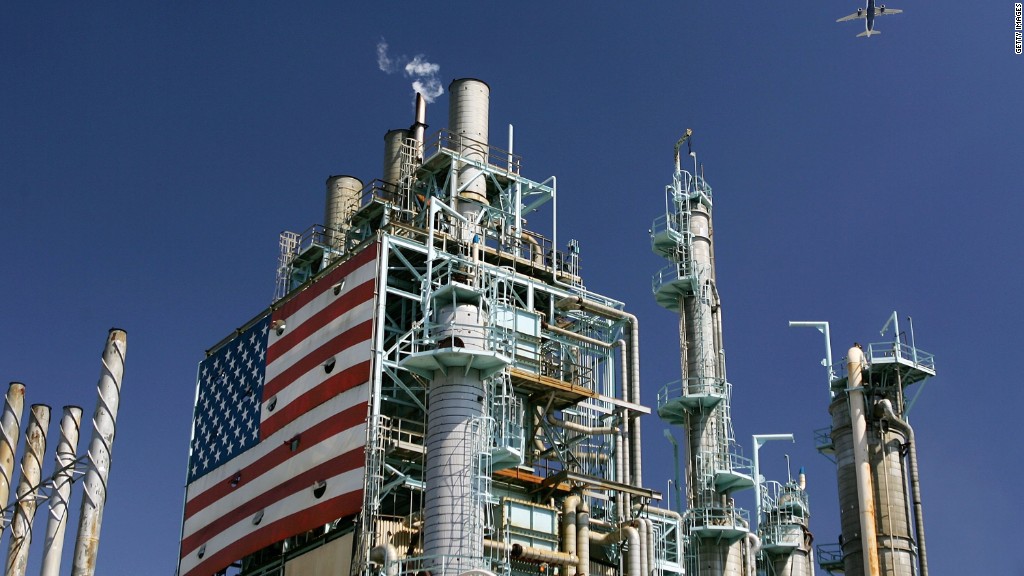
Negotiators from Shell Oil and the United Steelworkers have returned to the table as a strike at nine oil refineries entered its third day Tuesday.
The union insists the first large scale refinery strike in 35 years has nothing to do with pay, benefits or the falling price of oil, but instead is about worker safety.
"This issue is about the company's refusal to look at and bargain over safe working conditions," USW President Leo Gerard told CNN Monday. "It's about making sure we have a fatigue standard that they don't manipulate."
Gerard said workers are working 12 hour shifts for two or more weeks in a row, making workers susceptible to accidents.
The union is also fighting for limits on outside contractors doing maintenance work. The contractors don't have the same level of safety training or familiarity with the ins and outs of the refineries as the full-time workers, said USW spokeswoman Lynn Hancock.
Shell (RDSA), which is leading negotiations for management on the industry-pattern pact with the union, says it wants to reach an agreement with the union.
"While there are areas where Shell and the USW have common interests, it's unfortunate that the union has chosen to use a strike as a means to resolve areas where we differ," said Shell spokesman Ray Fisher. Fisher said protecting the health and safety of its workers, contractors and neighbors is a top priority for all of its operations, and that it expects contractors to have safety standards that meet or exceed those of Shell.
ExxonMobil (XOM), which has employees covered by the nationwide contract, said it won't comment on negotiations but that it wants to reach a deal "to allow us to operate safely."
Related: Big oil loses $200 billion from oil price crash
The union insists it was management who broke off talks just before the 12:01 a.m. Sunday contract expiration and that the union had no choice but to call a strike at nine refineries -- five in Texas, two in California, and one each in Washington State and Kentucky.
Still, most of the 30,000 USW members working at 65 refineries nationwide remain on the job, including at many Shell refineries. Just fewer than 4,000 are on strike.
Related: Oil giant Shell cuts spending by $15 billion
USW members refine nearly two-thirds of the nation's oil. Other unions such as the Teamsters and Operating Engineers bring the percentage of oil refined at unionized refineries to just above 75%, so the union doesn't face much in the way of competition from non-union facilities.
The union says it will decide on a day-to-day basis whether to expand the strike.
Most of the struck refineries remain operating with management running the facility. That can continue for a long time -- refineries basically stayed open through the last national strike, a 4-month walk-out in 1980.
That means that drivers probably won't see much impact from the strike, even if gas prices have been creeping higher for the last week after the national average bottomed out at just above $2 a gallon.
"I've never seen a refinery strike that had an impact that lasted more than a few hours," said Tom Kloza, chief oil analyst with the Oil Price Information Service. Market prices for both crude and wholesale gasoline swung between slightly lower and slightly higher in the first day of trading after the start of the strike.
Are you an oil worker on strike? Email us your story.

